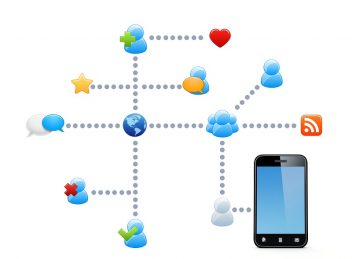How much does our use of social media reveal about our political views?
When companies like Cambridge Analytica use our data for political and commercial interests, it raises concerns about privacy and the integrity of democratic politics. But what exactly do our social media posts say about what we really think?
The revelation that as many as 87 million Facebook users have had their data harvested by Cambridge Analytica has generated massive public outcry, and hard questions for CEO Mark Zuckerberg, who will testify in front of two US Congressional committees this week.
Many of us share information about ourselves on social media. To what extent does what we post reveal our political opinions? A new research project from the Norwegian University of Science and Technology (NTNU) examines this exact question.
“NTNU will find out what our social media profiles reveal about our political opinions and feelings,” says Pieter de Wilde, an associate professor at the university’s Department of Historical Studies, who will head up a four-year project called ‘Trondheim Analytica’.
The project is designed to give people open-source insight into what major political organizations and institutions believe they know about us.
- You might also like: Exposing fake news on social media
Can they manipulate us?
“The idea that Cambridge Analytica and other political operators can manipulate votes and political opinion with micro-targeting is scary to many,” says de Wilde.
Although this use was not necessarily a surprise to professionals, it did surprise users and regulators. They have now raised concerns about privacy, and about the effect of the data use on democracy.
So do people have to be worried?

Your smartphone links you to a constellation of social media sites. But how can we better control what information is shared about us and with whom? Graphic: Colourbox
Sceptics believe the possibilities for micro targeting and manipulation of the democratic process are actually quite limited, says de Wilde.
Public attention is now focused on the impact on the 2016 US Presidential elections and Brexit referendum. But options in most of Europe to manipulate elections may be much lower. There are fewer social media profiles to harvest and analyse in small countries like Norway, de Wilde says.
Elections in parliamentary democracies are also more complicated than the binary choice between Clinton or Trump, Leave or Remain, he points out.
“And finally, political entrepreneurs are less willing and able to pay large sums of money to engage in this kind of campaigning,” he said. “There is thus a need to study the impact of social media on democracy and elections from a broader comparative perspective, as well as beyond the USA and the UK.”
However, as long as the tools and analyses used by Cambridge Analytica remain company secrets, we do not know how much these kinds of commercial organizations know and what they are capable of doing with the information in practice, de Wilde said.
- You might also like: Women not very involved in civic affairs on Facebook
Empowering users
Trondheim Analytica will involve professionals from the humanities, social sciences and computer science.
“The goal is to learn more about the issue so that individuals better understand better how and what our social media profiles reveal about our political orientation,” says de Wilde. “This is part of NTNU’s efforts to provide knowledge about the impact of the digital transformation on society.”

People should have the opportunity to know what their social media profiles say about them. Photo: Colourbox
Digital focus
Bjarne Foss is NTNU’s Pro-Rector for Research, and is leading the university’s new focus on “the digital transformation”, where the emphasis is on finding transformative digital approaches for industry and society.
The university is investing NOK 150 million, or roughly EUR 15 million, over the next three years on projects that involve ideas, discoveries, or tools that radically change our understanding of an important existing scientific or engineering concept or educational practice. Other projects have been funded because of their potential to lead to the creation of a new paradigm or field of science, engineering, or education.
“The purpose is to build a strong academic foundation that addresses key digital societal challenges. One of these is the openness perspective underlying the Trondheim Analytica project”, says Foss.
Foss said the university selected nine projects for funding, only 10 per cent of those that were submitted for consideration.
The projects selected “are all interdisciplinary, and they cover a wide range, from digital transformation in economics, to the transport sector and risk management,” says Foss.





